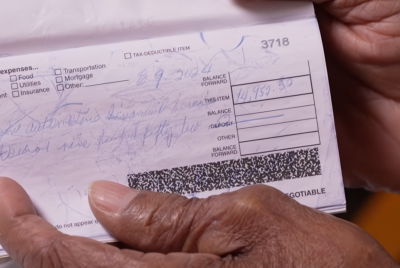Nasdaq Travel Stocks Tumble Amid Rising China–Japan Tensions
Leading Nasdaq travel stocks crashed following China's travel ban to Japan and escalating tensions between them.

Japan has maintained a defensive military posture for years, but a recent comment by its newly elected leader angered China. Both countries are far from the US, but the rising tension was felt on Wall Street. Nasdaq's travel stocks closed in the red at the start of the week of 17 November 2025.
Japanese Prime Minister Sanae Takaichi said last week that a military attack by Beijing on Taiwan is a 'survival-threatening situation' for Japan. The comment implies she might deploy Self-Defence Forces. China has issued a travel ban on Japan in protest.
Data from Japan's National Tourism Organisation shows that Mainland Chinese tourists account for 23 percent of all foreign visitors to the country thus far in 2025. Naturally, tourism-related Japanese stocks were not spared.
The Nikkei 225, Japan's leading stock index, declined 3.22% on Monday. Secom lost more than 11%. Oriental Land, Tokyo Disney Resort's operator, suffered the worst fall, with a more than 11% loss.
Nasdaq Travel Stocks React
Expedia Group tanked 7.75%, while Booking Holdings and Tripadvisor fell 4.83% and 3.88%, respectively. The escalating China-Japan dispute is just one of the headwinds threatening the travel business.
Google will venture into the travel space. The online search giant plans to introduce AI-powered search offerings to include hotel, flight, and other types of reservation bookings.
However, Google said it will form partnerships with online travel sites such as Expedia and Booking.com for actual bookings.
Expedia is the world's second-largest online travel agency by bookings. Its shares hit a 52-week high of $279.61 in intraday trading two days before the bloodbath. In Q3 2025, the $32.4 billion company saw its revenue and adjusted net income rise 9% and 19% year-over-year, respectively, to $4.4 billion and $962 million. In terms of performance, the stock is up nearly 32% year-to-date.
Glenn Fogel, president and CEO of Booking Holdings, noted the robust demand in the company's globally diversified business. In the quarter ended 30 September 2025, revenue and net income increased 13% and 14% to $9 billion and $2.7 billion compared to Q3 2024. Fogel added that GenAI has added excitement to the industry in terms of traveler and partner experience.
TripAdvisor, a $1.7 billion online travel company, has shifted its focus to high-growth marketplaces. According to its CEO, Matt Goldberg, this new portfolio accounts for almost 60% of revenue and 30% of profit. Notably, net income in Q3 2025 rose 10% to $80 million from a year ago, while free cash flow topped $26 million, up from negative $64 million in Q3 2024.
Geopolitical Risks
China is furious and demands that the Japanese leader retract her statement. Beijing warned Japan not to meddle in its internal affairs. It said her words were 'seriously damaging bilateral ties and challenging post-war international order.' The state added that Taiwan is part of China and reunification by force remains an option.
Tokyo clarified that Takaichi's comments were hypothetical and consistent with the 1972 Japan–China Joint Communiqué. Japan's chief cabinet secretary, Minoru Kihara, said China's travel advisories would hinder bilateral exchange.
Travel warnings trigger stock plunges, especially for travel-related businesses. Furthermore, the subsequent actions of the Chinese government heighten geopolitical risks because of the sensitivity of the Taiwan factor. For Japan, it could mean a significant decline in tourism revenue.
Meanwhile, a protracted diplomatic rift between the two countries could further unsettle markets or spark a sell-off of Nasdaq's leading travel stocks. The impact could likewise extend to airlines, leisure operators, cosmetics, and department stores.
Disclaimer: Our digital media content is for informational purposes only and does not constitute investment advice. Please conduct your own analysis or seek professional guidance before investing. Remember, investments are subject to market risks, and past performance does not guarantee future results.
© Copyright IBTimes 2025. All rights reserved.




















